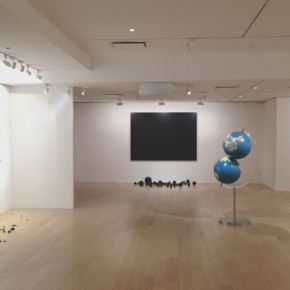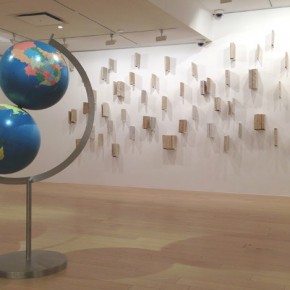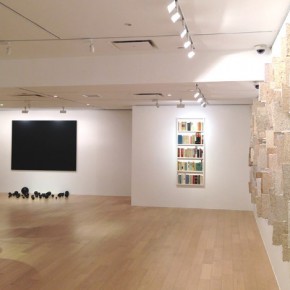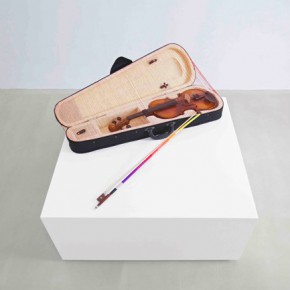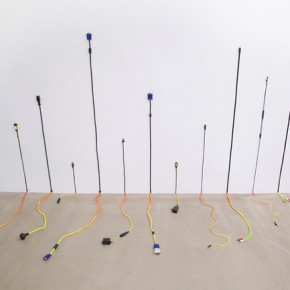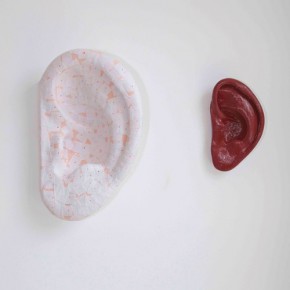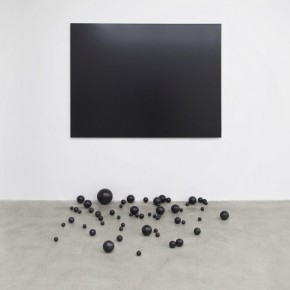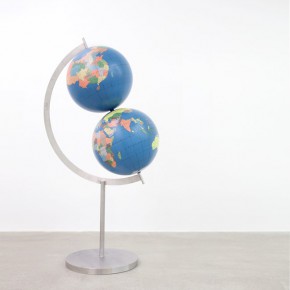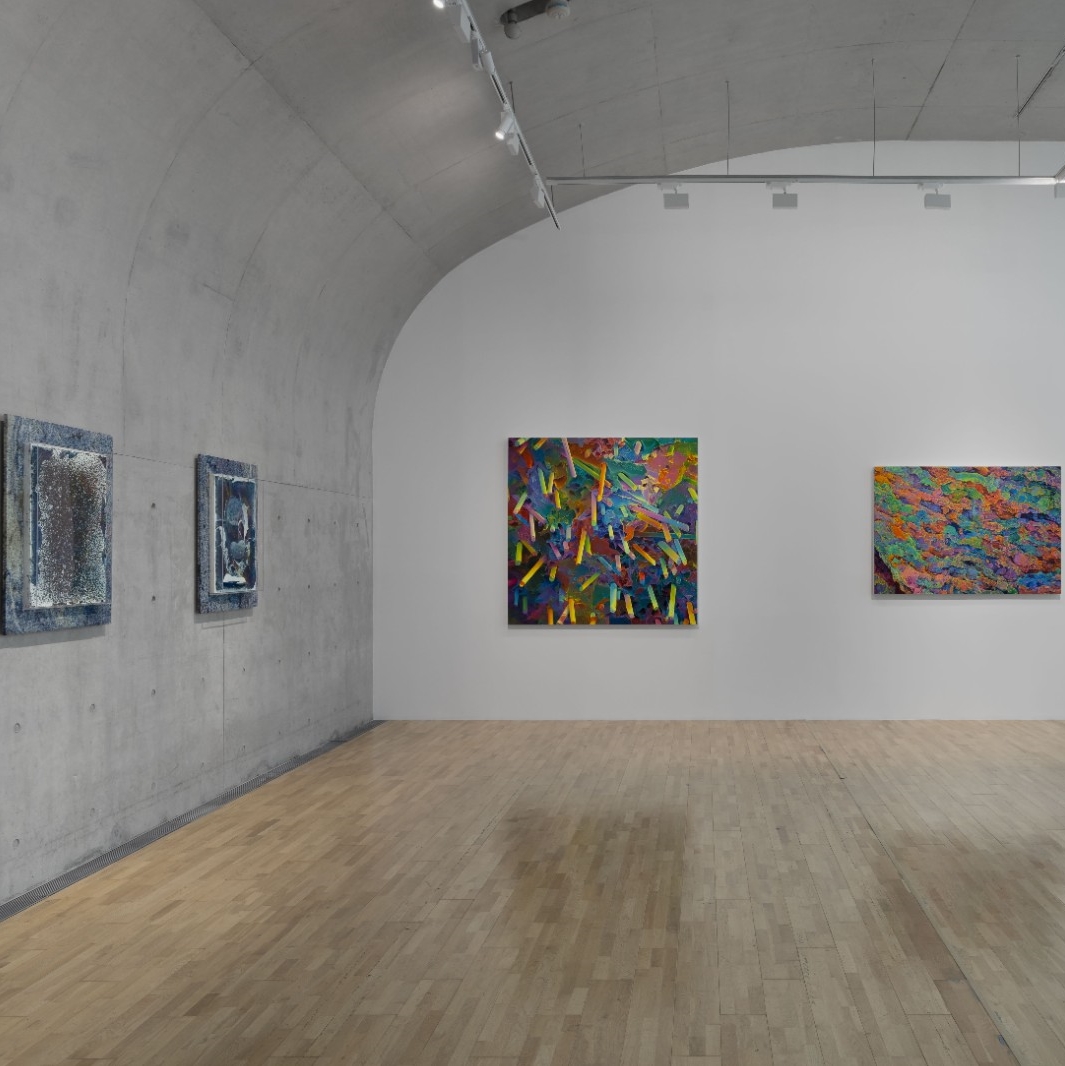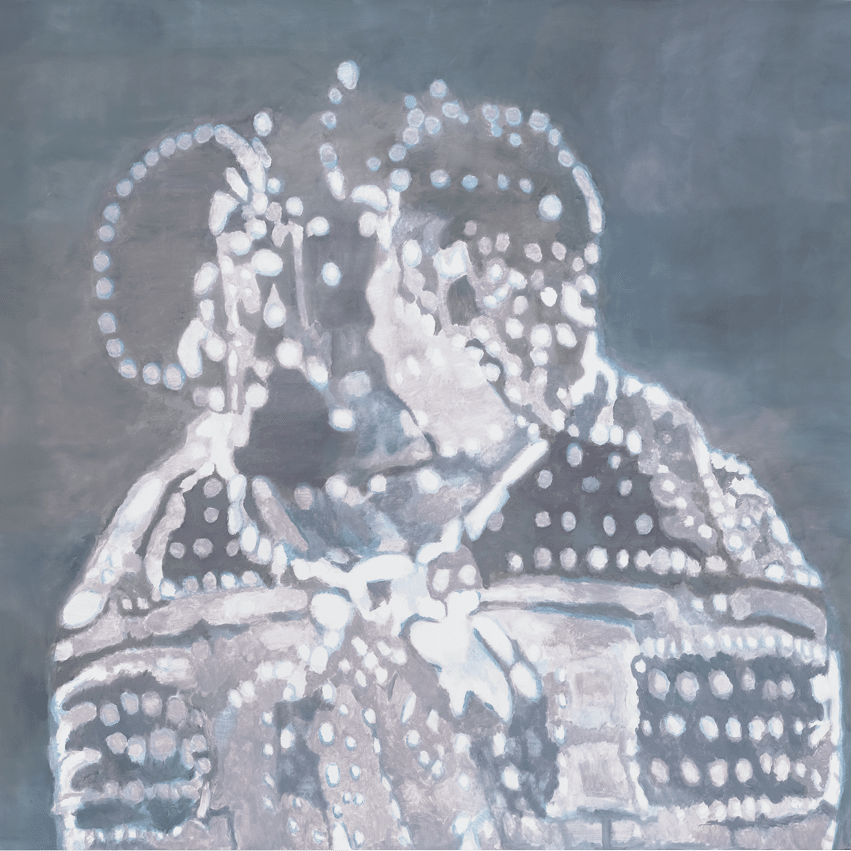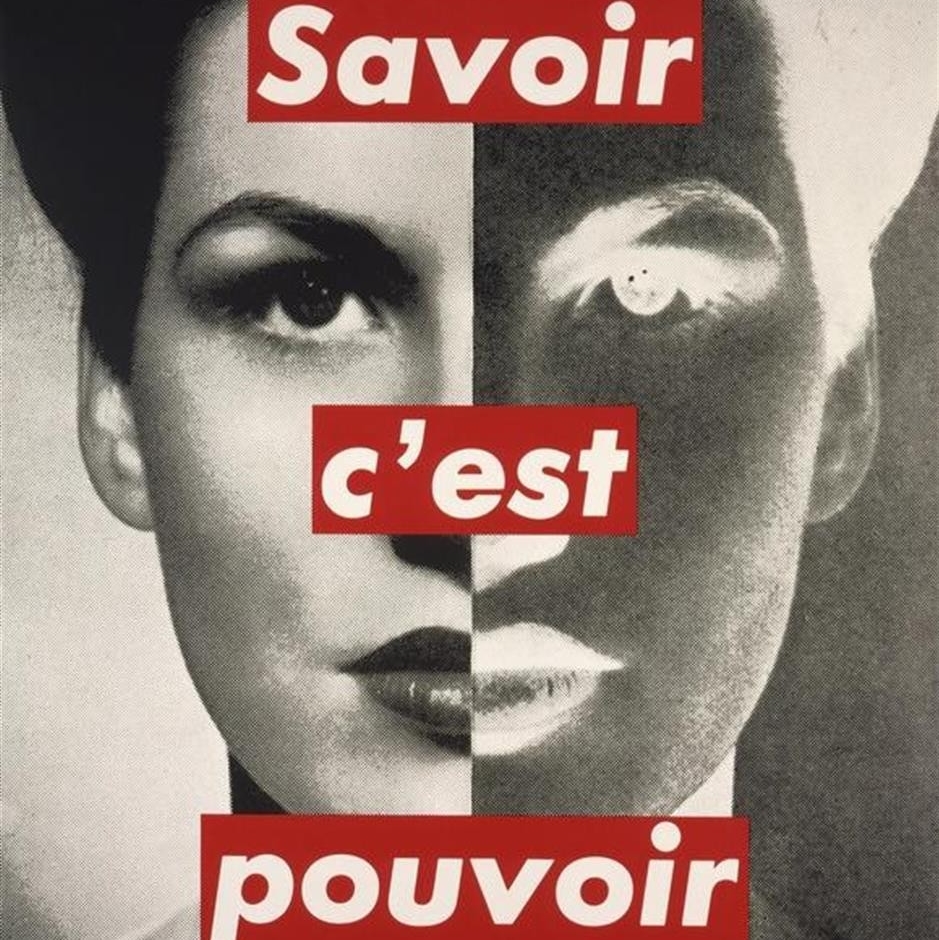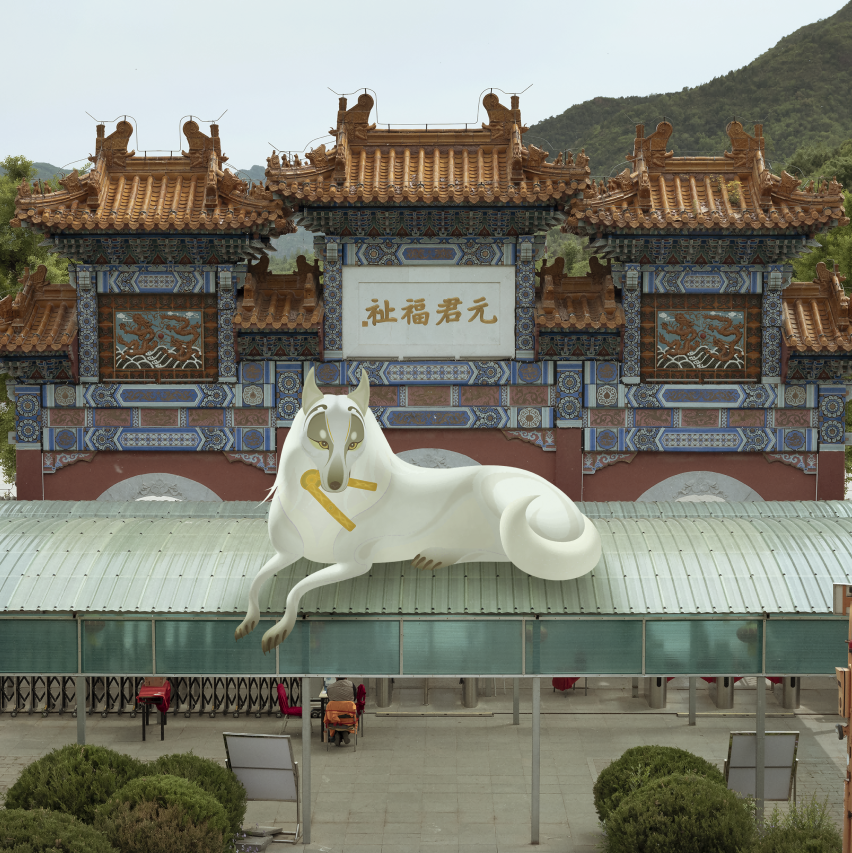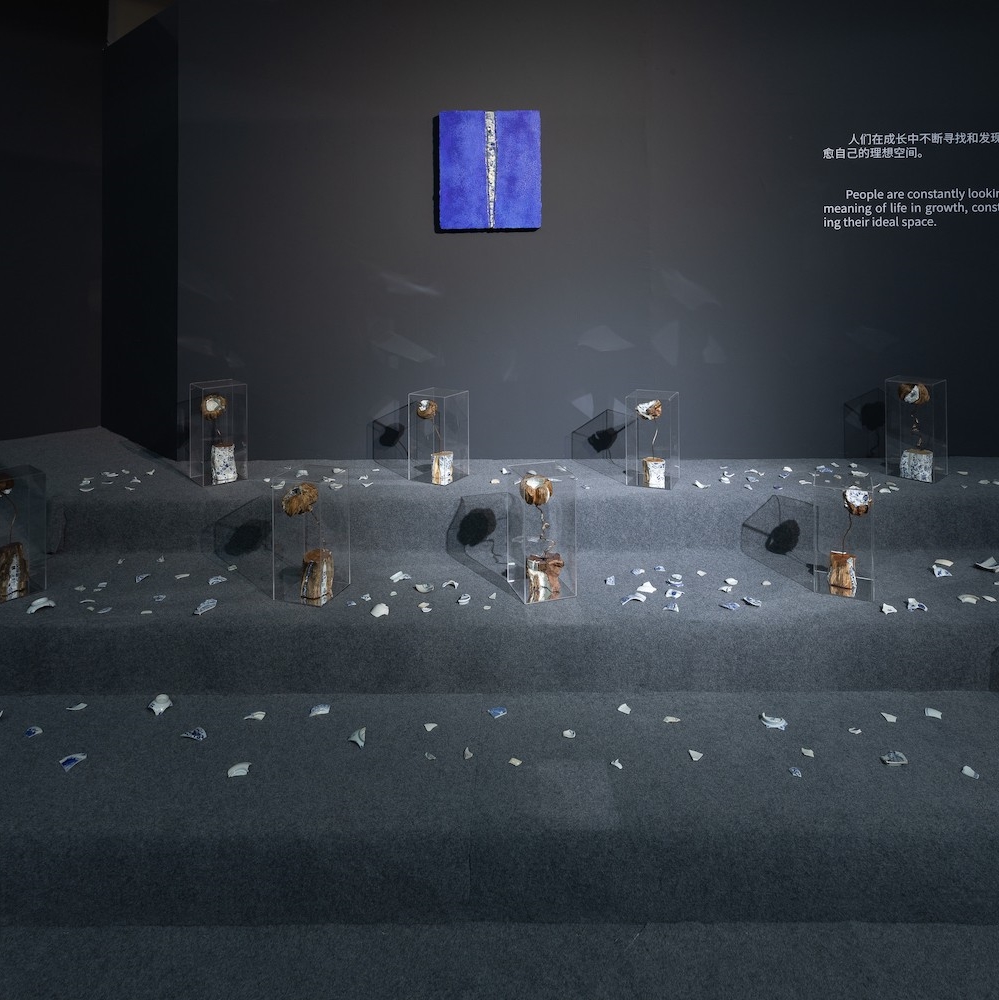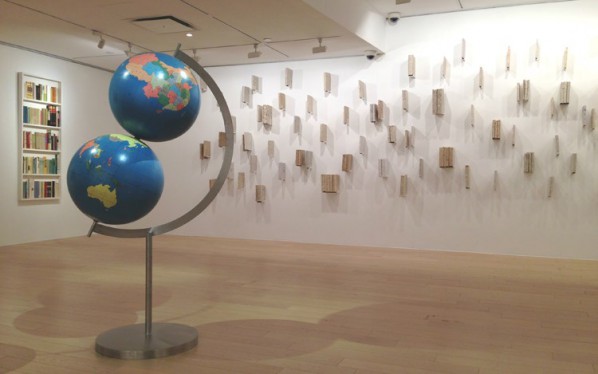
Lin Jingjing’s work titled I have yearned for something I cannot afford is composed of electronic devices cables, half covered in vivid colours and half left black. This obvious reference to connectivity and liveliness, without the cables the devices cannot get power, points that once isolated fom the devices the cables loose their purpose. The physical absence of the devices and the absurd sole presence of the cables opens to many interpretations about relation, connection, and to a further extent what powers or turns on objects, and maybe human beings. The title hints at the way priorities have shifted with the advance of technology and how we crave objets beyond our means as they appear a necessity. The mention of value also refers to the constant outdating of the latest model by an even newer one at a high price point, constantly prompting new expenses.
I heard all truths are red an expensive, a large red ear disconnected from a head and thus a brain receptor, humoursouly refers to the human habit to act according to what we hear, without processing or questonning the information received. The crave for newer technology gadgets certainly is related to this common listening and need to have the same possessions as our neighbours. This statement becomes even more critical in the art world, when one is said to be acquiring works with their ears, not their eyes.The sound listened can be indeed manipulated to convey information in a certain way, such as the violin the artist tempers with and renders more visually appealing in Everything is going to be fine. Playing the violin is a humourous mutil-cultural reference to not speaking the truth to please or convince the listener. As the cords have been replaced with colourful strings, one wonders what sounds would come out of the instrument if played.
In contrast and in relation to Lin JingJing’s works questionning the crave of devices to connect and the disconnect with intellectual processing of the information or relation, Zhou Wendou’s One hundred books one must read in a lifetime No.2 appears like another ‘must’. It can be seen as a constraint imposed to the individual by a mass. However, are books the ancestors of smartphones in isloating us from each other? How reliable a source of culture and information are they?
Zhou Wendou also explores the question of relatedness with a variety of possible interpretations with Two worlds. The reference can be about understanding and being connected to one another, but also to the planet and realising we do not have another Earth to rely on when we exhaust this one.
To conclude the overview of this show, Fallen borders brings a hopeful perspective by stating that there is no containing humanity within boundaries, whether geographical, cultural, economical or else. It’s bound to cross the limits it created for itself and reconnect, even to the other.
About the exhibition
Date: 3 November-20 November, 2015
Venue: de Sarthe Gallery
Courtesy of the artists and de Sarthe Gallery.


